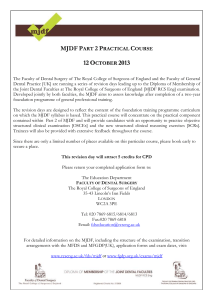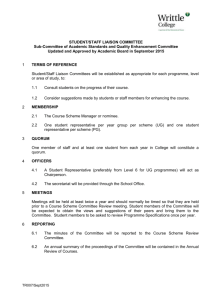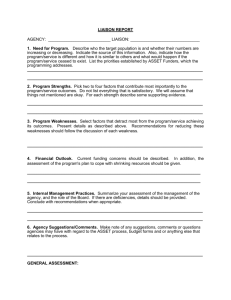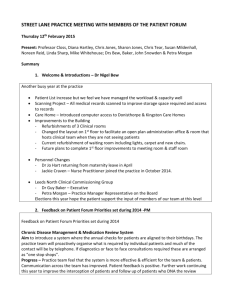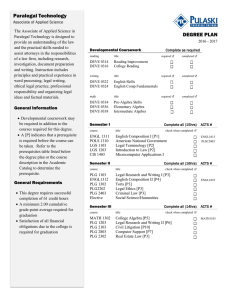Child patient rights and responsibilities PATIENT LIAISON GROUP JANUARY 2003 The Royal
advertisement
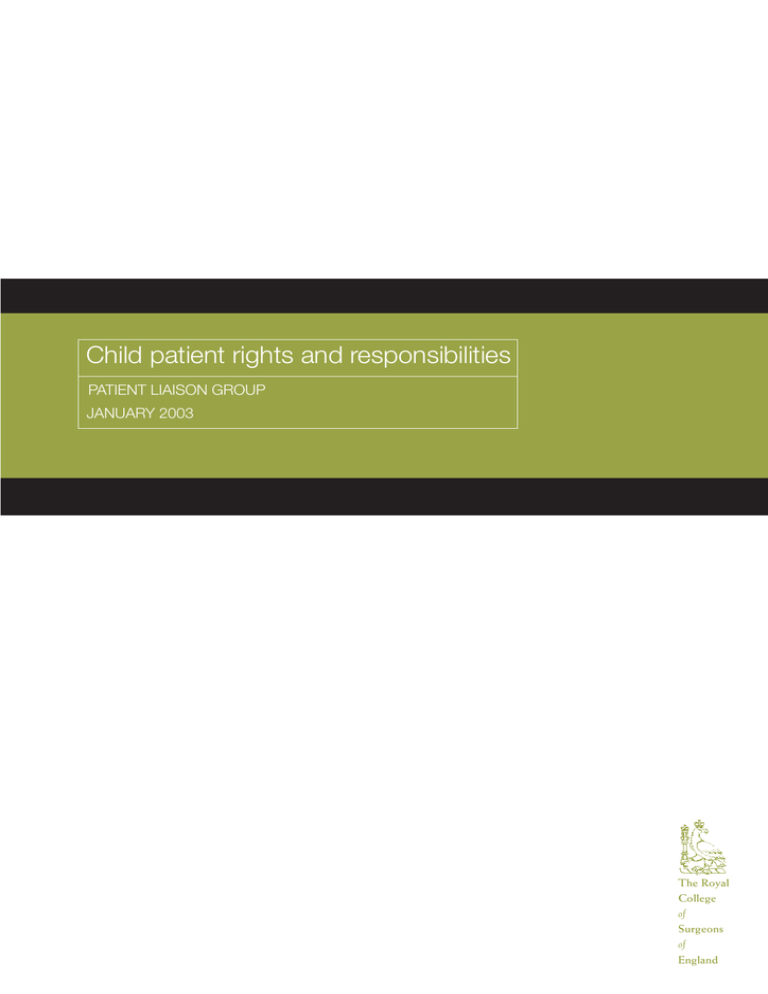
Child patient rights and responsibilities PATIENT LIAISON GROUP JANUARY 2003 The Royal College of Surgeons of England Everyone has a right to expect quality care while in hospital. Hospital staff and parents have a special duty of care to children and a legal responsibility to protect the child’s rights, interests and wishes. This is dependent on their age, understanding and the treatment they are having (this may differ in Scotland). While in hospital: A child can expect… • to receive treatment on the basis of clinical need. • courtesy and respect for privacy and dignity. • treatment in a children’s hospital, unit or ward that is right for their age and medical condition, with play and education available. • nursing care by appropriately trained children’s nurses. • to be involved in discussions (if they are able to understand) and consideration to be given to their wishes. • an introduction to the staff caring for them. • their operation to be carried out by, or under the supervision of, a surgeon with appropriate training and experience in the care of children. • anaesthetic from an anaesthetist who is trained and experienced in the care of children. As the parent or guardian of a child you can expect… • to be with your child during treatment, unless it puts either of you at risk, and to stay overnight if you wish. • to choose to have a relative or friend with you during consultations and examinations. • to be given time to ask questions about your child’s medical problems and suggested treatment and to get clear information about them (ask if written information is available). • to be given a name and telephone number of someone you can ring if you have any other questions. • to take part in all decisions about treatment and aftercare and to have the pros and cons, including any risks, side effects and alternative methods of treatment fully explained to you. • to be informed day or night of any worsening in your child’s condition. • staff to understand you may be feeling worried or nervous and this may affect the way you or your child behave. • to be told if there is a delay when you arrive for an appointment, how long you may have to wait and why. • to know the names, jobs and professional status of the staff involved in your child’s care. • to have all details about you and your child treated in confidence (except where required by law) and for your permission to be obtained before any details can be shared with anyone else. • to have the right to see any information kept about your child and family. • to complain if you are unhappy with the treatment you or your child receives. • to be given an explanation and, where appropriate, an apology, if things do not go as planned. • to choose whether or not your child may be seen by medical students. You and your child have a responsibility… • to treat all staff, other patients and families with courtesy and respect. • to let the hospitals know at once if you change your address or telephone number. • to understand that there are pressures of time and resources on the NHS and those working within it. • to give staff full information about your child’s condition and to let the staff know if your child has any physical or learning disabilities, allergies, sensitivities, conditions or changes in their health and of any medicines they are taking, including over the counter remedies. • to tell staff if your child is being, or has been, treated by other healthcare professionals that might be relevant to present treatment. • to tell staff if you do not understand or are uncertain about any part of the diagnosis or treatment and ask for more information or clearer explanation (in writing if it helps). • to follow the instructions given to you on the care of your child before going into hospital for an operation. • to make sure that your child follows the advice on what to do after the operation (eg exercise, diet, etc); takes any medicine as instructed; and seeks medical advice before stopping or changing treatment. • to think about and be aware of what might happen if you or your child refuse the recommended treatment or do not follow the doctors’ advice and accept responsibility for those actions and the subsequent results for your child. • to ensure that your child attends follow-up appointments and that all appointments are attended on time or that cancellation (with reasonable notice) is arranged. • to make sure you, your child and all accompanying visitors follow all the hospital and ward rules. © The Patient Liaison Group at The Royal College of Surgeons of England. Contact the PLG on tel: 020 7869 6045; fax: 020 7869 6045; or see the website at www.rcseng.ac.uk/welcome/information_for_patients_liaison/
